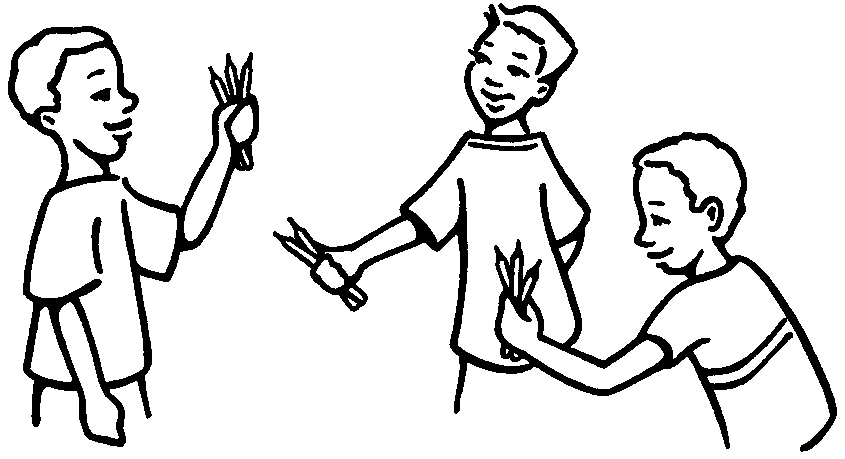| << Chapter < Page | Chapter >> Page > |
In the poem JUST ME in Module 12, you will notice that the apostrophe has been used quite often.
It shows the two reasons for using the apostrophe very well:
1. to shorten words 2. to show possession
See if you can use the apostrophe correctly in the exercises below.
| Couldnt | Theyll | Isnt | Shes | Youre | Couldve |
|
|
||
|
|
|
|
||
|
|
Now take a careful look at the illustrations and place the apostrophe in the correct place to show WHO owns the goodies.

the girls dogs

the ladies bags

the boys pencils

the mens hats
WOULDN’T IT BE LOVELY IF WE COULD ALLCELEBRATEOUR UNIQUENESS BYCELEBRATING OUR SIMILARITIES AND DIFFERENCES?
| 1. cry | |
| 2. untrue | |
| 3. seldom | |
| 4. honest | |
| 5. copy | |
| 6. angry | |
| 7. mistake | |
| 8. hug | |
| 9. smell | |
| 10. slender |

Find suitable synonyms for each listed word within the word search grid.
| 1. frightened | |
| 2. end | |
| 3. huge | |
| 4. rich | |
| 5. thief |
| X | B | D | Y | V | W | Y |
| D | C | N | S | W | H | Z |
| S | R | P | Z | T | K | Q |
| B | T | G | L | Q | J | I |
| S | C | A | R | E | D | H |
| Y | E | N | X | U | ||
| W | Y | S | E | O | L | W |
| R | A | L | G | R | U | B |
| F | V | C | D | M | E | F |
| L | Q | V | X | O | M | L |
| S | B | F | N | U | D | Z |
| F | I | N | I | S | H | A |
You have discovered things about yourself. You have learnt more about the children in your class. You have had the chance to learn about children from other countries.
Now! Imagine that you could be a child in a country of your choice. What country would you choose and why would you like to be a child of that country? Write about your choice and your reasons.
I WISH I WERE……………………
LEARNING OUTCOME 4: WRITING The learner is able to write different kinds of factual and imaginative texts for a wide range of purposes.
Assessment Standard
We know this when the learner:
4.1 writes different kinds of texts for different purposes and audience:
4.1.1 writes for personal, exploratory, playful, imaginative and creative purpose (e.g. letters, descriptive paragraphs, limericks).
LEARNING OUTCOME 6: LANGUAGE STRUCTURE AND USE The learner will know and be able to use the sounds, words and grammar of the language and interpret texts.
Assessment Standard
We know this when the learner:
6.2 works with sentences:
6.2.5 identifies and uses nouns, pronouns, verbs, adverbs, adjectives, prepositions;
6.2.8 uses punctuation correctly (e.g. quotation marks for direct speech, apostrophe for possession).
Activity 1
Activity 2
1. cry - weep
2. untrue - false
3. seldom - rarely
4. honest - frank
5. copy - imitate
6. angry - furious
7. mistake - error
8. hug - embrace
9. smell - odour
10. slender - thin
1. scared
2. finish
3. enormous
4. wealthy

Notification Switch
Would you like to follow the 'English home language grade 4' conversation and receive update notifications?